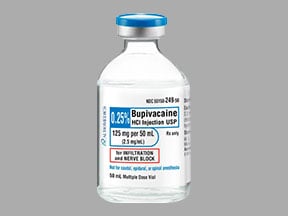
Sensorcaine Coupons & Savings Card – Discount Prices from $1.01
Brand for: Bupivacaine
My prescription
Edit
10ML of 0.25%, Bupivacaine (1 Vial)
Select pharmacy

CVS
$19.38
COUPON PRICE
Walmart
$1.01
COUPON PRICE
Walgreens
$3.89
COUPON PRICE
Albertsons
$4.39
COUPON PRICESensorcaine savings card
Show this card to your pharmacist
Walmart
$1.01
BIN
ID
PCN
GRP
019876
LH567C6248
CHIPPO
LHX
Powered by
More prescriptions for pain
More prescriptions for pain
Sensorcaine (Bupivacaine) dosage forms
Dosage Quantity Price from Per unit 10ML of 0.25% 1 Vial $1.01 $1.01 10ML of 0.5% 1 Vial $1.01 $1.01 10ML of 0.5% 2 Vials $1.01 $0.51 10ML of 0.5% 3 Vials $1.01 $0.34 10ML of 0.25% 2 Vials $1.01 $0.51 10ML of 0.25% 3 Vials $1.01 $0.34
| Dosage | Quantity | Price from | Per unit |
|---|---|---|---|
| 10ML of 0.25% | 1 Vial | $1.01 | $1.01 |
| 10ML of 0.5% | 1 Vial | $1.01 | $1.01 |
| 10ML of 0.5% | 2 Vials | $1.01 | $0.51 |
| 10ML of 0.5% | 3 Vials | $1.01 | $0.34 |
| 10ML of 0.25% | 2 Vials | $1.01 | $0.51 |
| 10ML of 0.25% | 3 Vials | $1.01 | $0.34 |
What is the drug Sensorcaine used for?
Sensorcaine is used as a local anesthetic to numb a specific area of the body during surgical procedures, dental work, or other medical interventions. It helps to block nerve signals in the body, providing pain relief in the targeted area.
Are Sensorcaine and lidocaine the same?
Sensorcaine and lidocaine are not the same. Sensorcaine is a brand name for bupivacaine, while lidocaine is a different local anesthetic. Both are used to numb tissue in a specific area, but they have different properties and durations of action.
Are Sensorcaine and bupivacaine the same thing?
Yes, Sensorcaine is a brand name for the drug bupivacaine. They refer to the same medication, which is used as a local anesthetic.
What are the symptoms of Sensorcaine toxicity?
Symptoms of Sensorcaine (bupivacaine) toxicity can include central nervous system effects such as dizziness, tinnitus, confusion, seizures, and loss of consciousness. Cardiovascular symptoms may include hypotension, bradycardia, arrhythmias, and in severe cases, cardiac arrest. It is important to seek immediate medical attention if toxicity is suspected.
What is the therapeutic class of sensorcaine?
Sensorcaine belongs to the therapeutic class of local anesthetics.
